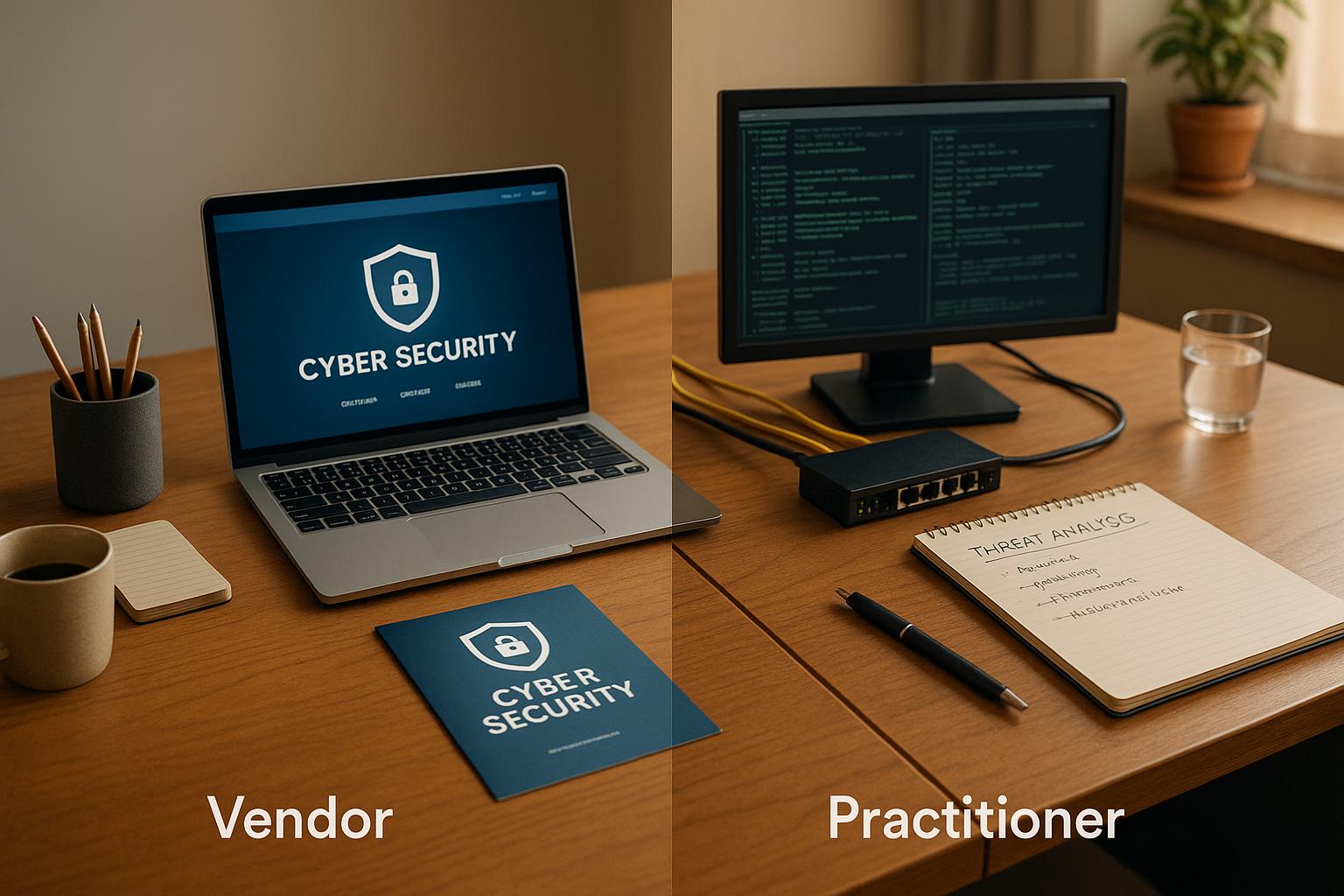Negotiating your first cybersecurity salary doesn’t have to be intimidating. With the right preparation and strategy, you can secure fair compensation while setting the stage for long-term career growth. Here’s how to approach it:
- Research Salary Ranges: Use tools like CyberSeek, PayScale, and Glassdoor to identify entry-level pay trends for cybersecurity roles in your area.
- Highlight Your Skills: Showcase technical expertise, hands-on projects, certifications, and unique experiences to demonstrate your value.
- Evaluate Benefits: Look beyond salary - consider health insurance, retirement plans, professional development support, and work-life balance perks.
- Practice Negotiation: Role-play salary discussions, refine your tone, and prepare responses to common questions to build confidence.
- Think Long-Term: Focus on opportunities for growth, mentorship, and skill development that can lead to higher earnings in the future.
Approach negotiations with confidence by combining market research, clear communication of your abilities, and a focus on both immediate and future benefits.
Get Paid! (How to Negotiate Your Offer Letter Like a Boss)
1. Research Market Rates for Entry-Level Cybersecurity Jobs
Before stepping into salary negotiations, it's essential to understand your market value. Knowing the typical pay range for entry-level cybersecurity roles helps you set realistic expectations and make informed decisions about your career path.
Several resources can provide accurate and up-to-date salary insights tailored specifically to cybersecurity roles. These tools allow you to filter data by job title, experience, location, and even educational background, offering a clearer picture of what employers are paying.
One standout resource is CyberSeek, which features an interactive Cybersecurity Career Pathway tool. This tool breaks down salary information by region, industry, and experience level, focusing solely on cybersecurity positions like security analysts, network engineers, and penetration testers.
Platforms like PayScale and Glassdoor are also invaluable. PayScale lets you refine your search by job title, experience, education, and location, while Glassdoor provides employee-contributed salary data, giving you transparency into what professionals earn at specific companies.
For authoritative data, the U.S. Bureau of Labor Statistics (BLS) is a trusted go-to. As of May 2024, it offered detailed salary figures and job outlooks for roles like information security analysts. Its government-backed insights are especially useful for long-term career planning and reliable salary benchmarks.
| Resource | Key Features | Best Used For |
|---|---|---|
| CyberSeek | Career pathway tool; salary data by region, industry, and experience | Exploring cybersecurity-specific roles and regional trends |
| PayScale | Filters by job title, experience, education, and location | Tailoring salary research to your career stage |
| Glassdoor | Employee-reported salaries; company-specific data | Comparing pay across companies and roles |
| U.S. Bureau of Labor Statistics | Government-backed salary data; job growth projections | Long-term industry insights and reliable benchmarks |
In addition to these tools, networking can offer valuable insider perspectives. Connecting with cybersecurity professionals - whether through events, LinkedIn, or online forums - can help you uncover trends in demand and compensation that might not appear in formal reports. Seasoned professionals can also provide guidance on salary expectations for specific roles.
When researching, focus on entry-level titles like "Cybersecurity Analyst I" or "Junior Security Specialist." Be sure to account for regional cost-of-living differences, and document a salary range that reflects the 25th to 75th percentile for your target role. This range will serve as a strong foundation for your negotiations, ensuring you're prepared to advocate for fair compensation.
Once you've gathered this data, you'll be ready to highlight your skills and confidently approach the next steps in your career journey.
2. Prepare to Show Your Skills and Experience
Once you’ve got a handle on market rates, the next step is to clearly demonstrate why you’re worth the salary you’re aiming for. To do that, you need to effectively showcase your skills and experiences, highlighting the value you bring to the table during salary negotiations.
Start by outlining your technical expertise. Mention skills like networking, Active Directory, Linux, scripting, and cloud technologies. These not only show your technical foundation but also highlight your ability to quickly learn security-specific concepts - qualities that make you a strong candidate.
If you’ve gained hands-on experience through virtual labs, challenges like Hack The Box or TryHackMe, or personal home lab projects, make sure to emphasize these. For example, you might have used tools like Kali Linux, Wireshark, or Metasploit. Specific projects, such as installing Security Onion as a network tap, configuring devices to feed data into a SIEM like Kibana, or running vulnerability scans with OpenVAS, can demonstrate your practical skills and problem-solving abilities.
Personal projects are another excellent way to stand out. For instance, developing Python scripts for network security monitoring or creating a basic intrusion detection system shows that you’re capable of building real-world solutions. These kinds of projects illustrate both your creativity and your ability to address practical challenges.
A professional online presence can also make a big impact. A well-organized GitHub repository or personal website where you showcase completed projects, case studies, or security research demonstrates not only your technical skills but also your ability to communicate complex ideas clearly. Employers value documentation because it shows you can contribute to knowledge sharing within their organization.
Participating in Capture The Flag (CTF) challenges or simulated cyber defense events is another way to build credibility. These competitions provide measurable accomplishments you can reference during salary discussions. Similarly, contributing to open-source projects or engaging in bug bounty programs can highlight your skills while also showing your commitment to continuous learning.
When discussing salary, connect your technical work to tangible outcomes. For example, explain how your projects helped you understand network vulnerabilities or master specific attack techniques. This approach turns your hands-on experience into clear value propositions that employers can appreciate.
Keep in mind that employers are often looking for potential as much as current skills. By clearly communicating how your self-directed learning and practical experiences from nontraditional sources have prepared you for the role, you position yourself as someone who takes initiative and is dedicated to growth. These are the kinds of qualities that justify competitive pay - even for entry-level positions. Use these examples to confidently advocate for the compensation you deserve.
3. Look at the Complete Benefits Package
When evaluating a job offer, don't get stuck on the base salary alone - take a good look at the complete compensation package. Benefits play a big role in your overall earnings and can significantly impact your quality of life.
Here’s a closer look at what to consider when assessing a benefits package:
Start with health insurance. Check the details like deductibles, co-pays, and the provider network. Some employers might cover your premiums entirely, while others may split the cost with you. Understanding these specifics can give you a better sense of the financial protection you'll have.
Next, review retirement plans, such as 401(k) matching. Pay attention to whether the employer's contributions vest immediately or if there’s a waiting period. This can make a big difference in how quickly you can access those funds.
Career development opportunities are another key factor. Many companies offer support for training and certifications, covering costs or providing access to learning platforms. This kind of investment in your professional growth can set you up for long-term success.
Work-life balance perks matter too. Flexible schedules, remote work options, and generous paid time off can make a job more enjoyable and adaptable to your lifestyle.
Don’t overlook additional perks like tuition reimbursement, conference fees, or memberships in professional organizations like (ISC)² or ISACA. These benefits can help elevate your career over time.
It’s also helpful to quantify benefits like health insurance contributions and retirement matching. Sometimes, a job with a slightly lower salary may actually offer more value when you factor in the benefits.
Finally, small perks like commuter benefits, gym memberships, free meals, or employee stock purchase plans can add up. When discussing your offer, acknowledging these extras as part of the full package shows you understand the broader value of what’s being offered.
sbb-itb-8a31326
4. Practice Professional Negotiation Skills
Preparation is key when it comes to securing a better deal, especially in salary discussions. For many entry-level cybersecurity professionals, these conversations can feel daunting. But with the right approach and plenty of practice, you can navigate them with confidence.
Start with role-playing exercises to get comfortable. Partner with someone who can act as the hiring manager, allowing you to practice presenting your research on market rates, highlighting your skills and certifications, and discussing compensation packages. This type of practice helps you refine your delivery and ensures you can communicate your value clearly and assertively.
"Practice that conversation with a role playing partner before you have it." - Senior Security Engineer at a large tech company in California
Focus on refining your tone and delivery. Strive to sound confident and professional - assertive without being demanding, and enthusiastic without appearing overly eager. Practice speaking clearly about your qualifications and prepare thoughtful responses for unexpected questions. The goal is to stay honest while maintaining a strong and positive impression.
"Practise your delivery. You're not rehearsing a speech, but have a friend or colleague practice speaking, answering questions and building your confidence. Be prepared for unexpected questions, and stay honest without undermining yourself." - TechVets
Get advice from industry professionals to gain insights into salary expectations and market trends. Recruiters, career advisors, and even tech bootcamps often provide workshops or one-on-one sessions to help you understand how your skills align with industry standards. Their feedback can be invaluable in shaping your negotiation strategy.
Regular mock interviews can also be a game-changer. These sessions not only sharpen your negotiation skills but also give you the confidence to discuss compensation effectively with hiring managers. Plus, they help you stay prepared for future opportunities.
5. Think About Long-Term Career Growth
Once you've honed your preparation and negotiation strategies, it's time to shift focus toward the bigger picture: the long-term potential of the role. Your first cybersecurity job is more than just a paycheck - it’s the foundation for your career. Sometimes, growth opportunities can far outweigh a slightly higher starting salary.
Take a close look at the learning opportunities each offer provides. Does the role expose you to multiple areas of cybersecurity? Ask about rotation programs, cross-training, or chances to collaborate with different teams. A role that broadens your skills can be a springboard for future success.
Mentorship is another key factor. Companies that offer structured mentorship programs, pairing you with seasoned professionals, can provide invaluable guidance. During negotiations, don’t hesitate to inquire about formal mentoring opportunities.
Find out if the employer supports your professional development by covering costs for certifications, training, or conferences. This kind of investment in your education not only sharpens your skills but also increases your earning potential down the line.
Ask about career progression timelines and milestones. A clear path for advancement can sometimes be more valuable than a slightly higher starting salary. Knowing where the role can take you in five years is crucial.
Finally, consider the type of experience the role offers. Does it provide broad exposure across the industry or specialized expertise that aligns with your long-term goals? A company’s reputation and its industry network are also worth weighing. Employers with strong connections can open doors for you as your career progresses.
Conclusion
Negotiating your first cybersecurity salary might seem daunting, but it becomes much more manageable when you rely on researched market data, highlight your proven skills, and practice your approach.
While securing a fair starting salary is important, don’t overlook the bigger picture. A role that offers mentorship, opportunities to learn, and a clear path for growth can often outweigh a slightly higher paycheck from a job with fewer prospects. Think about where the role can take you in the long run, not just what it pays today.
By coming to the table with specific salary benchmarks, a full understanding of benefits, and clear examples of your abilities, you’ll show the kind of professionalism that employers respect. This preparation not only helps you feel more confident but also ensures you’re advocating for fair compensation while setting yourself up for future success.
Your first cybersecurity job is more than just a paycheck - it’s the foundation of your career. The skills you develop, the connections you make, and the experiences you gain will influence your professional journey for years to come. Take the time to weigh opportunities beyond just the salary, considering how they align with your long-term goals.
If you’re still building the skills and knowledge needed to land that first role, resources like Root School can help you strengthen your technical expertise and industry understanding. The better prepared you are, the more confidently you can negotiate and step into your new career.
FAQs
How can I research salary expectations for entry-level cybersecurity jobs in my area?
To get a clear idea of salary expectations for entry-level cybersecurity roles, start by checking trusted sources like job boards, industry reports, and salary comparison tools. These resources often offer insights into average pay ranges based on factors like location, job title, and experience level.
In the U.S., salaries for entry-level cybersecurity positions generally fall between $79,500 and $115,500 per year. However, this can shift depending on regional demand and the local cost of living. To get a more precise understanding, review job listings in your area and consider connecting with professionals or mentors in the field for firsthand advice.
Knowing what to expect from the local job market and typical pay rates can prepare you to set realistic goals and approach salary negotiations with confidence.
What skills and experiences should I showcase when negotiating an entry-level cybersecurity salary?
When negotiating your salary for an entry-level cybersecurity position, it's important to showcase the certifications you've earned, such as CompTIA Security+, CISSP, or CEH. These credentials highlight both your technical skills and your commitment to the field, which employers highly value.
You should also talk about any practical experience you've gained. Whether it's using security tools, performing risk assessments, or handling incident responses, these hands-on experiences can set you apart. If you've worked on projects that enhanced system security or reduced vulnerabilities, make sure to share those achievements - especially if you can back them up with specific results.
Lastly, demonstrate your understanding of compliance standards like GDPR or HIPAA, as well as your familiarity with cybersecurity frameworks. Tailor your pitch to align with the company's specific needs and the role's demands to leave a lasting impression.
Why should you evaluate the full benefits package and career growth options when considering a job offer?
Evaluating the entire benefits package and career growth opportunities is crucial because they play a big role in your overall job satisfaction and financial stability. While salary is important, perks like health insurance, retirement plans, and paid time off can greatly impact your day-to-day quality of life and long-term financial goals.
On top of that, chances for professional growth - like training programs or clearly defined promotion paths - can influence where your career is headed. These opportunities don’t just help you build new skills; they also boost your market value, making them key factors to weigh when comparing job offers.


